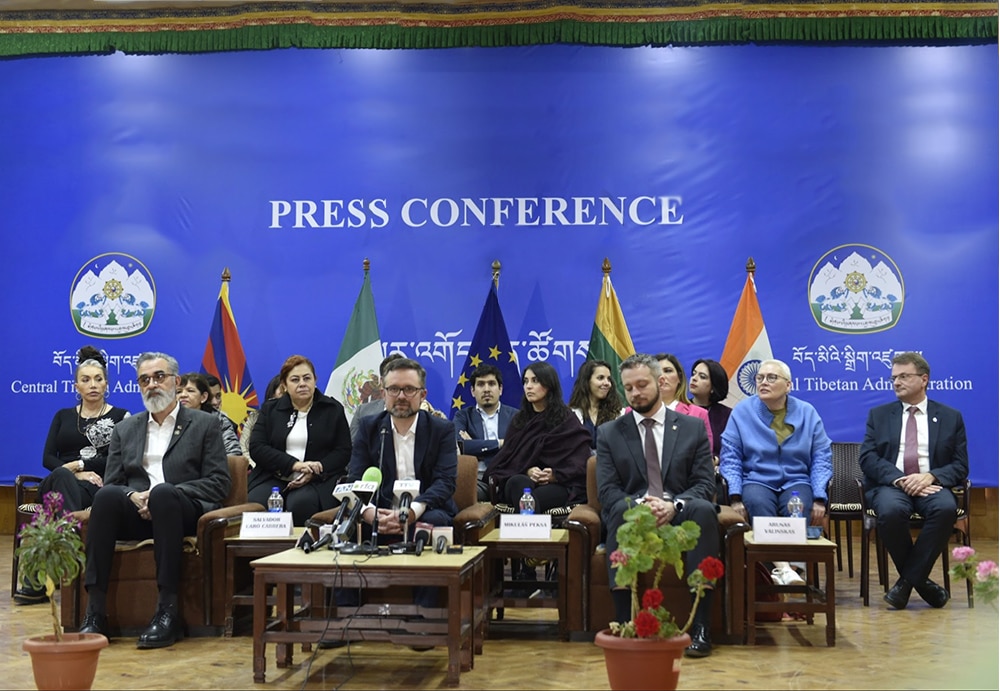UNDP Administrator Achim Steiner was among officials from across the UN system who participated in an international donors’ conference to support the two countries, held in Brussels on Monday.
The UN is “committed to step up and deploy our assets across the development and humanitarian spheres to stand with; and deliver for communities in Türkiye and Syria,” he said.
Staggering needs
The double earthquakes struck on 6 February, displacing roughly 3.3 million people in Türkiye and destroying some 650,000 apartment buildings and houses.
Over half a million people are now homeless in neighbouring Syria, where needs were already at their highest level in 12 years of war, with around 70 per cent of the population – 15.3 million people – requiring humanitarian assistance.
Mr. Steiner stressed that access to basic services and livelihoods is a must for a more sustainable recovery to avoid vulnerability from deepening.
Funding the response
“That means providing emergency assistance to enable people to survive from day-to-day, always the number one priority,” he said.
“It also involves contributing the funds they will need to start returning to normality, to start working again, and to start piecing back together the communities that lays in ruins around them.”
The UN continues to deploy emergency teams and relief operations in both countries. However, a $1 billion appeal for Türkiye is less than 17 per cent funded, he said, while a $398 million flash appeal for Syria has so far received nearly $290 million.
Leadership and generosity
Mr. Steiner said the UN counts on the leadership, solidarity, and generosity of international donors to help to generate significant financing for recovery initiatives, which include debris removal, restoration of incomes and livelihoods, and rehabilitation of critical infrastructure.
“At this tragic moment for the people of Türkiye and Syria, your support will help to light the candles that will illuminate a way out of this darkness, and these candles cannot flicker; they must light the path to recovery,” he said.
Crisis atop crisis
For Syrians, the earthquake has been “akin to the effect of COVID-19 infecting a sick body weakened by 12 years of crisis,” the UN Humanitarian Coordinator in the country, El-Mostafa Benlamlih, told the conference.
In addition to the 500,000 Syrians now displaced, thousands more have lost access to basic services and livelihoods, he reported. Furthermore, shelters, camps, and informal settlements are overcrowded, violence and abuse are on the rise, and the threat of cholera is looming.
“Thousands of men, women, children, orphans, and vulnerable people need shelter, food, medicine, blankets, toilets, water, electricity, sewerage, education, health services, and protection,” he said. “Above all, they need dignity, jobs, and legitimate options in life. If left without options, people will seek alternatives elsewhere.”
Mr. Benlamlih warned against “business as usual”, as assistance must lift Syrians out of poverty, reduce vulnerabilities, and break the cycle of dependency on aid.
“Millions of men, women, and children in Syria need our support,” he said. “Let us focus on people not on politics. We need your support, we need funds, and we need access.”
Children from Al-Hamam camp, which is a reception center for the displaced housing about 75 families in Jenderes, Aleppo governorate
Aid update
Meanwhile, the UN reported that in Government-controlled areas in Syria, humanitarian partners have provided assistance to 324,000 people in February and 170,000 people so far this month, primarily in the most affected governorates of Aleppo, Hama, and Lattakia.
Every day since 9 February, an average of 22 trucks carrying aid provided by seven UN agencies have crossed from Türkiye into north-west Syria, using the three available border crossings.
“Our humanitarian colleagues warn about the lack of resources to replenish emergency stocks, with the main Humanitarian Response Plan for Syria being only 5.7 per cent funded,” said UN Deputy Spokesperson Farhan Haq, speaking during the daily media briefing at UN Headquarters in New York.
Aid partners report that their emergency response stocks have been depleted, putting operations at risk unless urgent funding is made available, he said.
He added that the Syrian healthcare system, which was already overwhelmed before the earthquake, is also at risk of collapse in some areas, depriving people in need of life-saving medical services.














